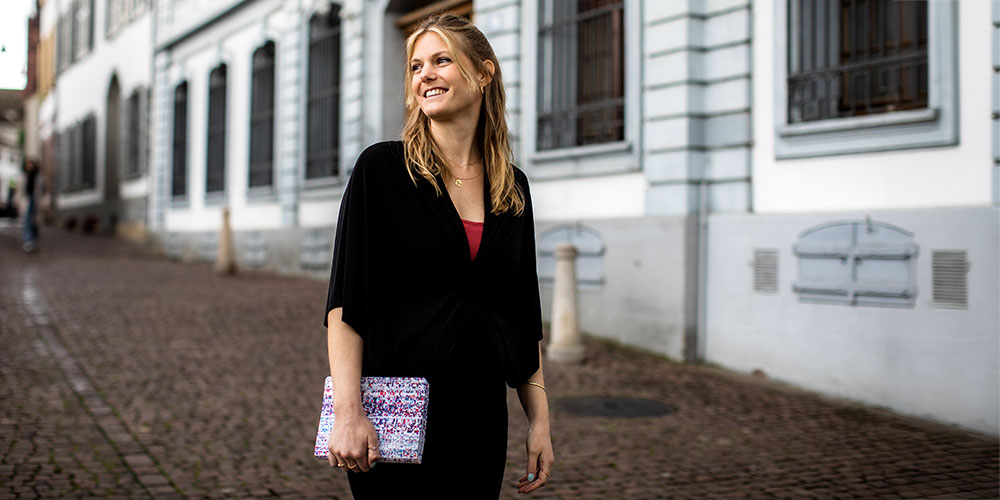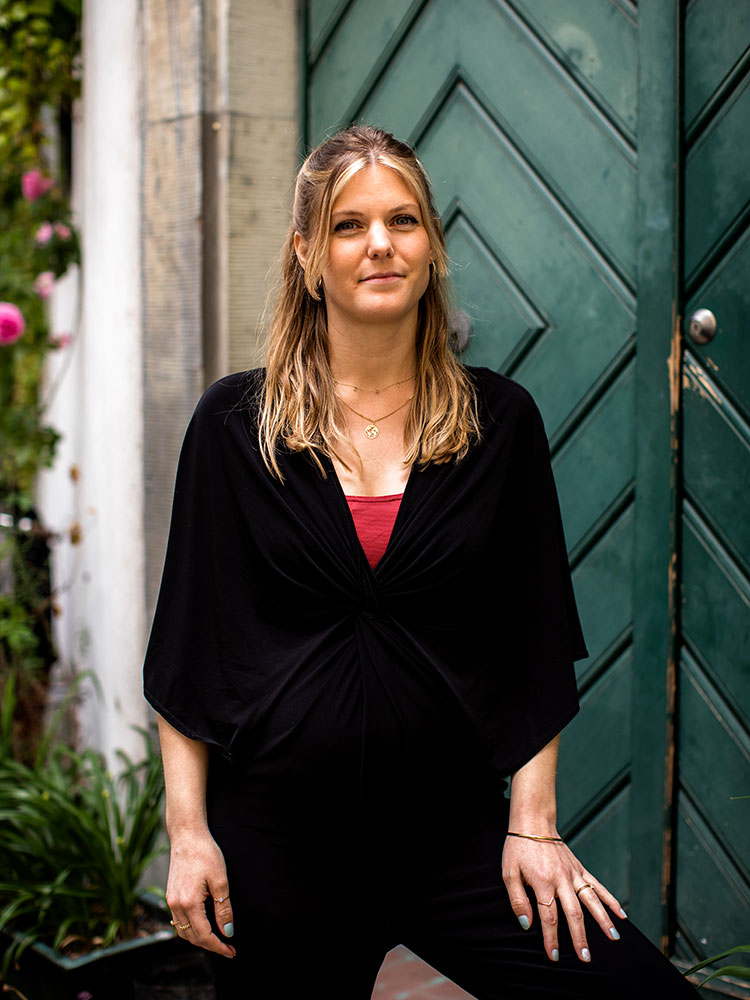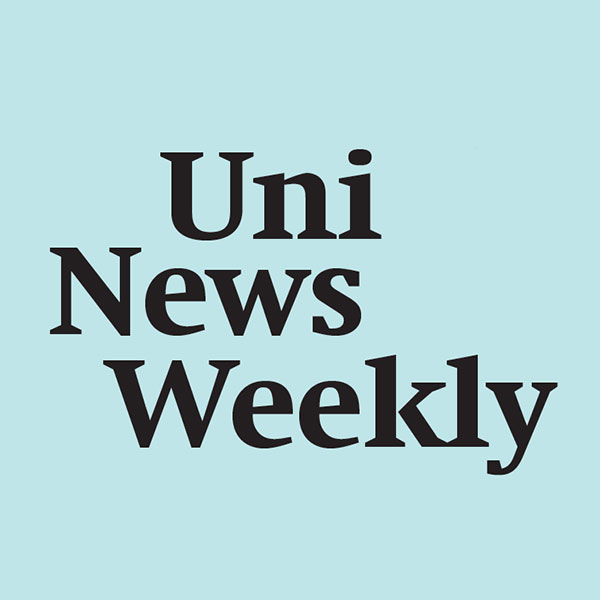In Focus: Darja Schildknecht looks at the role of security companies from her particular perspective as a female researcher
Although she’s barely completed her dissertation, Darja Schildknecht is already dreaming of a postdoc; the academic can’t get enough of her work. Even if she will be contributing her expertise in a non-academic setting for the time being.
18 July 2024 | Catherine Weyer
Darja Schildknecht has mixed feelings when she thinks about her future. On the one hand, she is relieved to have finally submitted her dissertation after four years of work. But at the same time, it also means saying goodbye to the work that she has pursued so passionately over the past few years.
“I love academic work, spending hours thinking, researching theoretical foundations and coming up with my own thoughts,” says the 33-year-old Schildknecht. “Even during my master’s degree, I knew that I wanted to write a dissertation,” she says. And this despite leaving academia behind for six years after completing her master’s degree at the London School of Economics.
That part of her life is almost over – Schildknecht’s contract ends in August, when she will be leaving the University of Basel. A big moment in Schildknecht’s life. She wrote her dissertation on security, gender and decolonial feminism, with a focus on the privatization of violence. For the SNSF project “How Gender Matters in the Policy and Practice of ‘Preventing and Countering Violent Extremism’”, the academic also spent a year in Kenya conducting field research.
From Kosovo to Kenya
Field research in Kenya was the most difficult period of Schildknecht’s doctorate. Her work sheds light on the global counterterrorism regime, including its impact in the context of Kenya. Her mission was to find out from local security forces what their understanding of security is and how that works in practice. She interviewed representatives from the police, the military and the private security industry. It was the latter that proved particularly challenging; as an outsider she was often denied access. “My identity as a young woman made it difficult for me to carry out field research in the field of security, as I wasn’t automatically seen as a peer,” she recalls. “That’s why I deliberately focused on my previous military experience to raise my credibility with my interviewees,” she says.
After completing her master’s degree, Schildknecht was part of a peacekeeping mission with the Swiss Army in Kosovo, where she worked as a press officer. “We spent the first three months in the barracks, learning how the military works and preparing for deployment,” she says. Knowing the military from the inside helped Schildknecht conduct field research and gain easier access to interviewees, she says.
This was especially useful in the case of the private security industry in Kenya, where most management positions are occupied by British ex-military personnel. “My deliberate, strategic adoption of military masculinities to gain access to data wasn’t as simple as I had imagined,” she recalls. Although Schildknecht ultimately managed to conduct more than twenty interviews with representatives of the private security industry, she experienced assault in the form of sexualized violence and threats.
Security is a matter of interpretation
She devotes an entire chapter to these experiences in her dissertation. “It’s important to reflect on who is actually leading the conversation and setting the research focus. As a young white woman, I take on a very specific position in the field,” she says. Reflecting on the identities and positions one brings to research is a focal point of decolonial feminism, defining how knowledge and information are transmitted. “There isn’t just one answer to my research question. What I can contribute through my research is a piece of the puzzle from my perspective,” she explains.
The conclusion of her research: the tendency towards prevention in the counterterrorism regime allows security actors to redefine themselves and expand – and thus safeguard themselves. “Gendered security strategies are often used to create greater acceptance and to maintain a position on the security market,” says Schildknecht. “Women, for example, are specifically recruited to work as analysts.” Women are seen as possessing intelligence, as opposed to physical strength, which is reserved for men.
Understanding how the world works
Darja Schildknecht has clear plans for the future: she is expecting her first child in the fall, and she will be taking up a job with the Swiss military as a gender advisor at the same time. Her mission will be to introduce the human security perspective, including gender, into all military operations. “In real terms, this means raising awareness of how such a perspective can have a concrete impact on military action – in war, in exercises, but also in the army’s day-to-day operations,” she explains.
Although Schildknecht is leaving the university once again, it will not be for long. “I’m hoping for a postdoc position with my doctoral supervisor for a follow-up SNSF project,” she says with a glint in her eye. Even though it’s not yet clear whether the project will even come about, she definitely wants to be part of it. “We simply have to learn how this world works. And what better place to do that than at the university?”
In Focus: the University of Basel summer series
The In Focus series showcases young researchers who are playing an important role in furthering the university’s international reputation. Over the coming weeks, we will profile academics from different fields – a small representative sample of the 3,000+ doctoral students and postdocs at the University of Basel.





